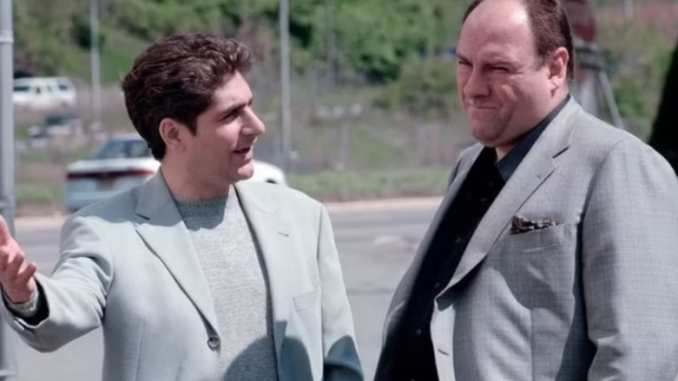
Christopher Moltisanti: A Life of Pain and Bad Choices in The Sopranos
The Sopranos was the first of its kind, where the audience felt like they were watching a movie in every episode. The unique character arcs and brilliant gangster stories combined to create a great show that lasted for nearly a decade on HBO. Starting in 1999, the show followed gangster Tony Soprano, played by legendary actor James Gandolfini. Throughout its run, The Sopranos explored many unique themes that were not the norm for television. It completely changed the rules of what a TV show could be. It created the Golden Age of Television, encouraged many adventurous shows, and embarked on a new world order of home viewing.
The Sopranos was not only known for its visual storytelling or its profound moral questions. It offered a variety of character arcs that kept the audience invested in the same way they invested in Tony Soprano. The show introduced a variety of supporting characters, like Christopher Moltisanti (Michael Imperioli), who had one of the best character arcs on television. It could be said that the nuance in Imperioli’s portrayal was unparalleled in any series, which is why his fate shocked audiences.
Throughout The Sopranos, Christopher struggled to get noticed. He was educated by abusive parents and poverty, so the emphasis on self-improvement was constantly on his mind. The pressures of the underworld took a toll on him, and he constantly questioned whether all his efforts were worth it. In the episode “The Legend of Tennessee Moltisanti,” Christopher reflected to Paulie Gualtieri, played by Tony Sirico, that he was tired of just existing and wanted to do something with his life. As he sits and tries to write a script on his laptop, he mentions that all the characters have some sort of backstory, and he says to Paulie, “Where’s my backstory?” when his frustration with life gets him down. Christopher’s existential crisis reverberates throughout the entire show, in some ways driving him to escape through drugs and alcohol. These screenwriting books say that every character has a backstory. Where’s My Backstory? was released, but it was basically a bad B-movie. He even tried his hand at acting for a bit, giving some impressive performances in the process. However, he was never good at expressing or controlling his emotions, which led him to shoot down his co-stars. He never tried acting again after that. At one point in the show, Tony offered him a way out of the mafia world, giving him a choice between writing scripts or his role in the mafia, which ultimately sealed his fate.
Throughout The Sopranos, Christopher checked into a rehab facility several times to deal with his drug and alcohol addiction. Acting similarly to Jesse Pinkman in Breaking Bad, he was at his best when sober, but when he was not sober, he spiraled out of control. The problem Christopher always faced was that when things got tough, he focused on his anger and his bad habits. When he was excited and frustrated about moving up in the mafia world, he turned to drugs. When he was officially promoted, the pressure of higher responsibilities pushed him to use drugs. Ultimately, his addiction led to his downfall, but the addiction itself did not kill him.
Throughout The Sopranos, Tony saw great potential in Christopher. He sees him as the son he always wanted. Tony’s son, Anthony Junior, is not good enough to join the mafia, but Christopher has always supported Tony. For this reason, Tony has given Christopher many opportunities.
In the new HBO show, The Penguin, which has been compared to The Sopranos, Nadia Maroni calls Oswald Cobb (the show’s main character) a dog that can be bent before them. No doubt, Tony Soprano views Christopher in a similar way. He is trustworthy, but still less than Tony, and can be molded into whatever he needs to get what he wants. That idea doesn’t last forever, because by the final season of The Sopranos, Christopher is no longer trustworthy. He becomes a liability.